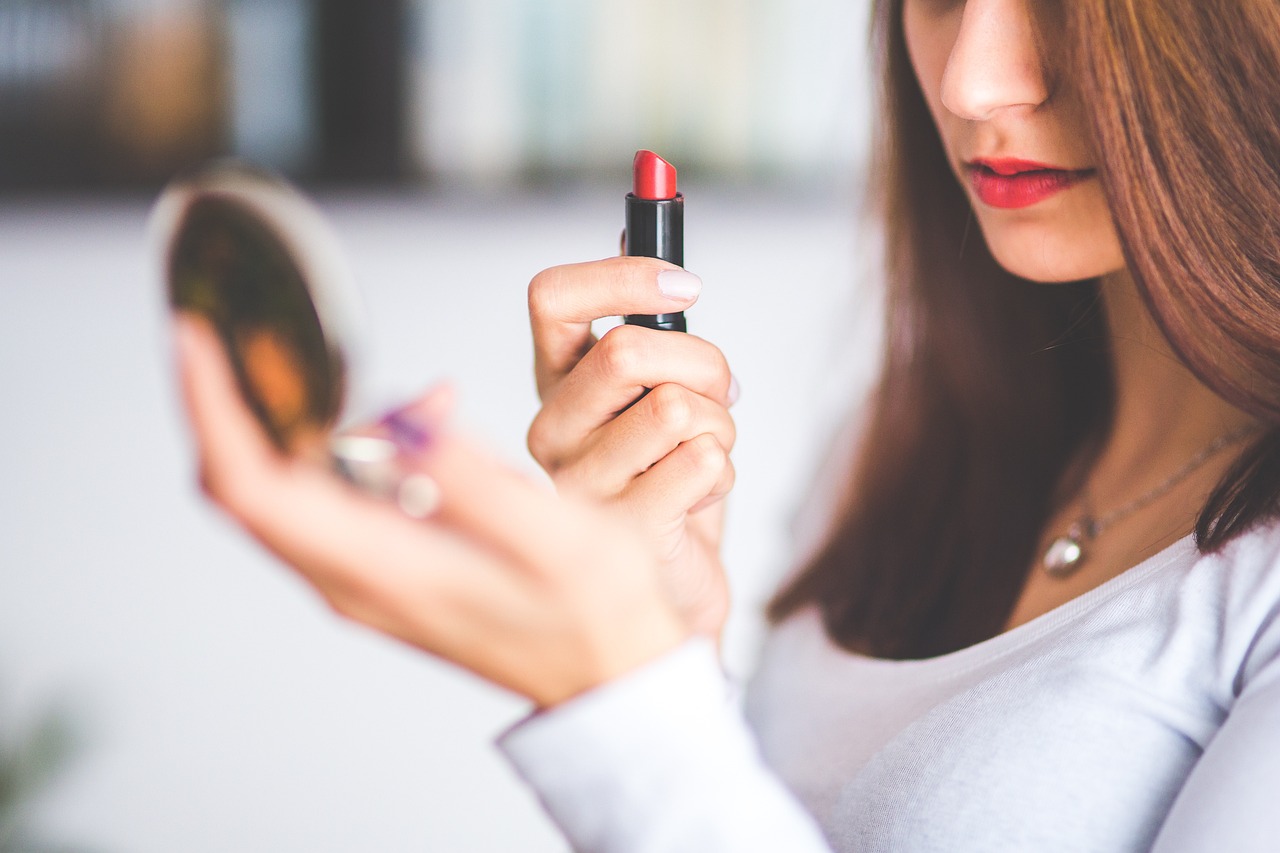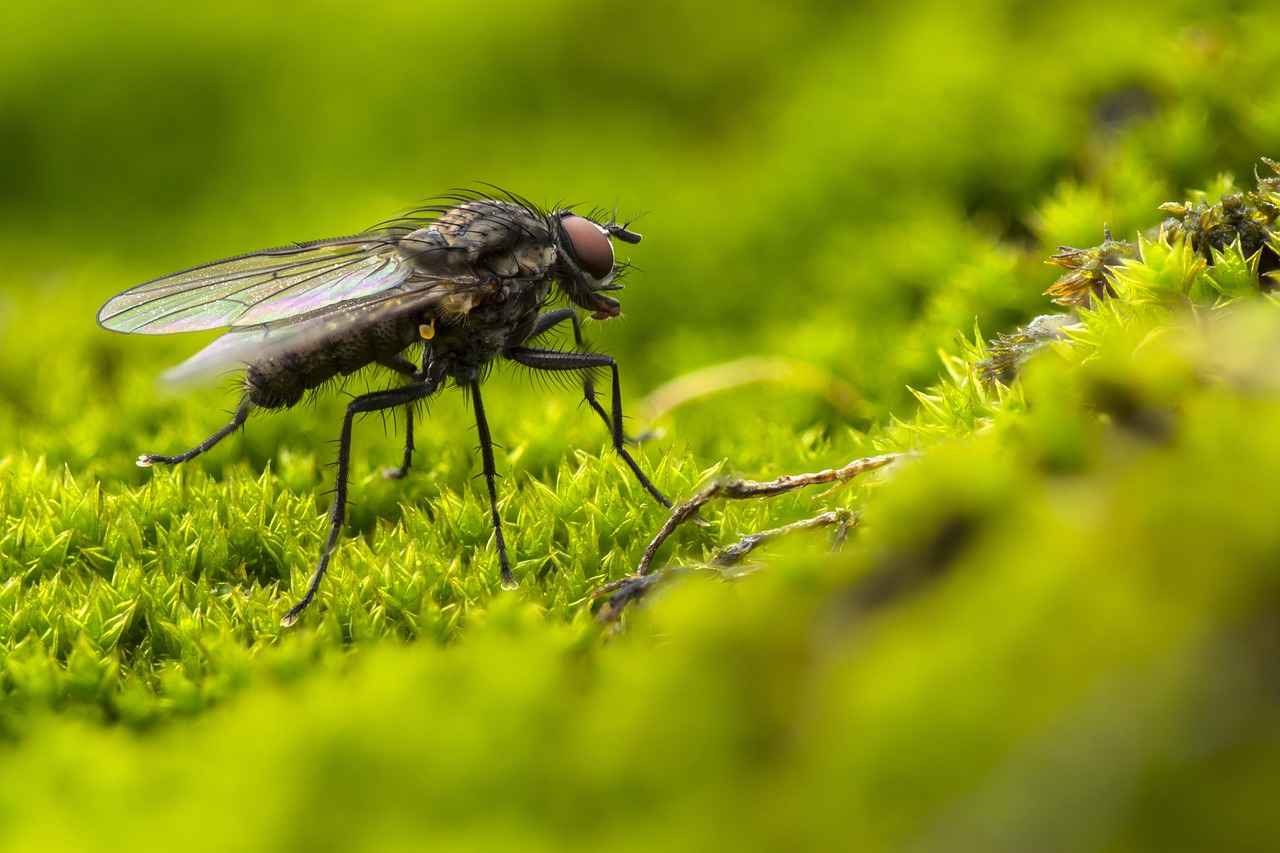Best Hair Care Tips from Leading Hair Transplant Clinics
This article provides essential hair care tips recommended by leading hair transplant clinics, ensuring you maintain healthy hair and maximize the results of your transplant procedure.
Understanding Hair Transplants
Learn about the basics of hair transplants, including the different techniques available and how they can benefit individuals experiencing hair loss.
Post-Transplant Care Essentials
Discover the critical steps to take immediately after your hair transplant to ensure optimal healing and hair growth.
Daily Hair Care Routine
Establishing a consistent hair care routine is vital. This section outlines daily practices to keep your hair healthy and vibrant.
Choosing the Right Products
Selecting appropriate hair care products can significantly affect your hair’s health. Explore the best types of shampoos, conditioners, and treatments.
Nutrition for Healthy Hair
Nutrition plays a crucial role in hair health. Learn about the essential vitamins and minerals that promote growth and strength.
Common Mistakes to Avoid
Avoiding certain hair care mistakes can prevent damage and promote healthier hair. This section highlights the most common pitfalls.
Importance of Scalp Care
Healthy hair starts with a healthy scalp. Understand the importance of scalp hygiene and care in your overall hair health.
When to Seek Professional Help
Know when it’s time to consult a professional for hair issues. This section discusses signs that warrant expert advice.
Hair Styling Tips
Styling your hair can be tricky post-transplant. Discover safe styling techniques that won’t damage your new hair.
Understanding Hair Growth Cycles
Familiarize yourself with the hair growth cycle to set realistic expectations for your hair transplant results.
Long-Term Hair Maintenance
Maintaining your hair long-term is essential for lasting results. Learn strategies for ongoing care and maintenance.
Conclusion: Embracing Your New Look
In conclusion, embracing your new hair involves consistent care and attention. Follow these expert tips to ensure your hair remains healthy and beautiful.
Best Hair Care Tips from Leading Hair Transplant Clinics
This article provides essential hair care tips recommended by leading hair transplant clinics, ensuring you maintain healthy hair and maximize the results of your transplant procedure.
Understanding Hair Transplants
Hair transplants are a popular solution for those experiencing hair loss. They involve relocating hair follicles from one part of the body to the thinning or balding areas. The two main techniques used are Follicular Unit Transplantation (FUT) and Follicular Unit Extraction (FUE). Each method has its unique advantages, and understanding these can help you make an informed decision.
Post-Transplant Care Essentials
After your hair transplant, following a specific care regimen is crucial. This includes avoiding strenuous activities, keeping the scalp clean, and using prescribed medications to promote healing.
Daily Hair Care Routine
Establishing a consistent hair care routine is vital. Here are some daily practices:
- Gently wash your hair with a mild shampoo.
- Condition regularly to maintain moisture.
- Avoid excessive heat styling tools.
Choosing the Right Products
Selecting appropriate hair care products can significantly affect your hair’s health. Look for shampoos and conditioners that are sulfate-free and designed for sensitive scalps.
Nutrition for Healthy Hair
A balanced diet rich in vitamins and minerals is essential for healthy hair. Foods high in biotin, vitamin E, and omega-3 fatty acids can promote growth and strength.
Common Mistakes to Avoid
Avoiding certain hair care mistakes can prevent damage. Common pitfalls include:
- Over-washing your hair.
- Using harsh chemicals.
- Neglecting scalp health.
Importance of Scalp Care
Healthy hair starts with a healthy scalp. Regular exfoliation and moisturizing can prevent dryness and flakiness.
When to Seek Professional Help
Know when it’s time to consult a professional. Signs like excessive shedding or irritation should prompt a visit to your dermatologist.
Hair Styling Tips
Styling your hair post-transplant can be tricky. Opt for gentle techniques that avoid tugging on the hair follicles.
Understanding Hair Growth Cycles
Familiarize yourself with the hair growth cycle to set realistic expectations for your transplant results. Hair typically goes through phases of growth, rest, and shedding.
Long-Term Hair Maintenance
Maintaining your hair long-term is essential for lasting results. Regular trims and continued use of quality products can help keep your hair looking its best.
Conclusion: Embracing Your New Look
In conclusion, embracing your new hair involves consistent care and attention. Follow these expert tips to ensure your hair remains healthy and beautiful.
##
Understanding Hair Transplants
Best Hair Care Tips from Leading Hair Transplant Clinics
This article provides essential hair care tips recommended by leading hair transplant clinics, ensuring you maintain healthy hair and maximize the results of your transplant procedure.
Understanding Hair Transplants
Hair transplants have become a popular solution for individuals experiencing hair loss. There are various techniques available, including Follicular Unit Transplantation (FUT) and Follicular Unit Extraction (FUE). These methods can effectively restore hair density and provide a natural look. Understanding the basics of these procedures is crucial for anyone considering a hair transplant.
Post-Transplant Care Essentials
Proper care immediately after your hair transplant is vital for optimal healing and hair growth. Some essential steps include:
- Keeping the scalp clean and dry
- Avoiding strenuous activities
- Using prescribed medications
Daily Hair Care Routine
Establishing a consistent hair care routine is vital. Recommended practices include:
- Gentle washing with sulfate-free shampoo
- Conditioning regularly to maintain moisture
- Avoiding heat styling tools
Choosing the Right Products
Selecting appropriate hair care products can significantly affect your hair’s health. Look for products that are:
- Free from harsh chemicals
- Formulated for your hair type
- Rich in nourishing ingredients
Nutrition for Healthy Hair
Nutrition plays a crucial role in hair health. Essential vitamins and minerals include:
- Biotin for hair strength
- Vitamin E for scalp health
- Omega-3 fatty acids for hydration
Common Mistakes to Avoid
Avoiding certain hair care mistakes can prevent damage. Common pitfalls include:
- Over-washing your hair
- Using the wrong products
- Neglecting scalp care
Importance of Scalp Care
Healthy hair starts with a healthy scalp. Regular cleansing and moisturizing can promote a thriving environment for hair growth.
When to Seek Professional Help
Recognizing when to consult a professional for hair issues is essential. Signs that warrant expert advice include:
- Excessive hair shedding
- Scalp irritation or redness
- Persistent hair thinning
Hair Styling Tips
Styling your hair post-transplant requires caution. Safe techniques include:
- Using a wide-tooth comb
- Avoiding tight hairstyles
- Minimizing the use of heavy products
Understanding Hair Growth Cycles
Familiarizing yourself with the hair growth cycle can help set realistic expectations for your hair transplant results.
Long-Term Hair Maintenance
Maintaining your hair long-term is essential for lasting results. Strategies for ongoing care include:
- Regular trims to avoid split ends
- Continued use of recommended products
- Monitoring scalp health
Conclusion: Embracing Your New Look
In conclusion, embracing your new hair involves consistent care and attention. Follow these expert tips to ensure your hair remains healthy and beautiful.
Best Hair Care Tips from Leading Hair Transplant Clinics
This article provides essential hair care tips recommended by leading hair transplant clinics, ensuring you maintain healthy hair and maximize the results of your transplant procedure.
Understanding Hair Transplants
Hair transplants have emerged as a popular solution for individuals facing hair loss. These procedures involve relocating hair follicles from a donor site to areas of thinning or no hair. There are primarily two techniques: Follicular Unit Transplantation (FUT) and Follicular Unit Extraction (FUE). Each method has its benefits and considerations:
- FUT: Involves removing a strip of scalp and dissecting it into follicular units. This technique can yield a high number of grafts in one session, making it ideal for extensive hair loss.
- FUE: Involves extracting individual hair follicles directly from the scalp. This method is less invasive, leaves minimal scarring, and allows for quicker recovery.
Both techniques can significantly benefit those experiencing hair loss by restoring hair density and improving self-esteem. Choosing the right method depends on individual needs, hair type, and the extent of hair loss.
Post-Transplant Care Essentials
After undergoing a hair transplant, proper care is crucial for optimal healing and hair growth. Key steps include avoiding strenuous activities, following your surgeon’s instructions, and using prescribed medications.
Daily Hair Care Routine
Establishing a consistent hair care routine is vital. Gentle cleansing and conditioning are essential to maintain the health of your hair and scalp.
Conclusion: Embracing Your New Look
In conclusion, embracing your new hair involves consistent care and attention. Following these expert tips will help ensure your hair remains healthy and beautiful.
##
Post-Transplant Care Essentials
Best Hair Care Tips from Leading Hair Transplant Clinics
This article provides essential hair care tips recommended by leading hair transplant clinics, ensuring you maintain healthy hair and maximize the results of your transplant procedure.
Understanding Hair Transplants
Learn about the basics of hair transplants, including the different techniques available and how they can benefit individuals experiencing hair loss.
Post-Transplant Care Essentials
Discover the critical steps to take immediately after your hair transplant to ensure optimal healing and hair growth.
- Follow Your Surgeon’s Instructions: Adhering to post-surgery guidelines is crucial for recovery.
- Avoid Strenuous Activities: Refrain from heavy lifting and intense workouts for at least a week.
- Keep the Area Clean: Gently wash your scalp as advised to prevent infection.
- Use Prescribed Medications: Take any medications to reduce swelling and promote healing.
- Stay Hydrated: Drink plenty of water to support overall health and hair growth.
Daily Hair Care Routine
Establishing a consistent hair care routine is vital. This section outlines daily practices to keep your hair healthy and vibrant.
Choosing the Right Products
Selecting appropriate hair care products can significantly affect your hair’s health. Explore the best types of shampoos, conditioners, and treatments.
Nutrition for Healthy Hair
Nutrition plays a crucial role in hair health. Learn about the essential vitamins and minerals that promote growth and strength.
Common Mistakes to Avoid
Avoiding certain hair care mistakes can prevent damage and promote healthier hair. This section highlights the most common pitfalls.
Importance of Scalp Care
Healthy hair starts with a healthy scalp. Understand the importance of scalp hygiene and care in your overall hair health.
When to Seek Professional Help
Know when it’s time to consult a professional for hair issues. This section discusses signs that warrant expert advice.
Hair Styling Tips
Styling your hair can be tricky post-transplant. Discover safe styling techniques that won’t damage your new hair.
Understanding Hair Growth Cycles
Familiarize yourself with the hair growth cycle to set realistic expectations for your hair transplant results.
Long-Term Hair Maintenance
Maintaining your hair long-term is essential for lasting results. Learn strategies for ongoing care and maintenance.
Conclusion: Embracing Your New Look
In conclusion, embracing your new hair involves consistent care and attention. Follow these expert tips to ensure your hair remains healthy and beautiful.
Best Hair Care Tips from Leading Hair Transplant Clinics
This article provides essential hair care tips recommended by leading hair transplant clinics, ensuring you maintain healthy hair and maximize the results of your transplant procedure.
Understanding Hair Transplants
Learn about the basics of hair transplants, including the different techniques available and how they can benefit individuals experiencing hair loss.
Post-Transplant Care Essentials
After undergoing a hair transplant, it is crucial to follow specific steps to promote optimal healing and hair growth. Here are some essential actions to take:
- Follow Your Surgeon’s Instructions: Adhere strictly to the post-operative guidelines provided by your surgeon. This includes medication schedules and activity restrictions.
- Keep the Scalp Clean: Gently wash your hair with a mild shampoo to prevent infection. Avoid scrubbing or using hot water.
- Avoid Direct Sunlight: Protect your scalp from the sun by wearing a hat or using sunscreen. Sun exposure can harm healing tissues.
- Do Not Scratch or Pick: Refrain from touching or scratching the transplanted area to prevent dislodging grafts.
- Maintain a Healthy Diet: Consume a balanced diet rich in vitamins and minerals to support hair growth.
Daily Hair Care Routine
Establishing a consistent hair care routine is vital. This section outlines daily practices to keep your hair healthy and vibrant.
Choosing the Right Products
Selecting appropriate hair care products can significantly affect your hair’s health. Explore the best types of shampoos, conditioners, and treatments.
Nutrition for Healthy Hair
Nutrition plays a crucial role in hair health. Learn about the essential vitamins and minerals that promote growth and strength.
Common Mistakes to Avoid
Avoiding certain hair care mistakes can prevent damage and promote healthier hair. This section highlights the most common pitfalls.
Importance of Scalp Care
Healthy hair starts with a healthy scalp. Understand the importance of scalp hygiene and care in your overall hair health.
When to Seek Professional Help
Know when it’s time to consult a professional for hair issues. This section discusses signs that warrant expert advice.
Hair Styling Tips
Styling your hair can be tricky post-transplant. Discover safe styling techniques that won’t damage your new hair.
Understanding Hair Growth Cycles
Familiarize yourself with the hair growth cycle to set realistic expectations for your hair transplant results.
Long-Term Hair Maintenance
Maintaining your hair long-term is essential for lasting results. Learn strategies for ongoing care and maintenance.
Conclusion: Embracing Your New Look
In conclusion, embracing your new hair involves consistent care and attention. Follow these expert tips to ensure your hair remains healthy and beautiful.
##
Daily Hair Care Routine
Daily Hair Care Routine
Establishing a consistent hair care routine is vital for maintaining healthy, vibrant hair. This routine should be tailored to your hair type and specific needs, especially after a hair transplant. Here are some essential practices to incorporate into your daily hair care regimen:
- Gentle Washing: Use a mild, sulfate-free shampoo to cleanse your hair without stripping it of natural oils. Aim to wash your hair 2-3 times a week to avoid over-washing.
- Conditioning: Apply a nourishing conditioner after every wash. Focus on the ends of your hair to prevent dryness and split ends.
- Drying Techniques: Avoid vigorous towel drying. Instead, gently pat your hair with a soft towel or let it air dry whenever possible.
- Heat Protection: If you use heat styling tools, always apply a heat protectant spray to minimize damage.
- Scalp Care: Keep your scalp clean and healthy. Consider using a scalp scrub or treatment to promote circulation and remove buildup.
- Regular Trims: Schedule regular haircuts every 6-8 weeks to maintain your hair’s shape and remove split ends.
Hydration and Nutrition: Drink plenty of water and maintain a balanced diet rich in vitamins and minerals that support hair health, such as biotin, zinc, and omega-3 fatty acids.
Protective Styles: Consider protective hairstyles that minimize manipulation and reduce the risk of breakage, especially during the healing phase post-transplant.
By following these daily hair care practices, you can ensure your hair remains healthy and vibrant, maximizing the results of your hair transplant.
Best Hair Care Tips from Leading Hair Transplant Clinics
This article provides essential hair care tips recommended by leading hair transplant clinics, ensuring you maintain healthy hair and maximize the results of your transplant procedure.
Understanding Hair Transplants
Learn about the basics of hair transplants, including the different techniques available and how they can benefit individuals experiencing hair loss.
Post-Transplant Care Essentials
Discover the critical steps to take immediately after your hair transplant to ensure optimal healing and hair growth.
Daily Hair Care Routine
Establishing a consistent hair care routine is vital for maintaining the health and vibrancy of your hair. Here are some daily practices to consider:
- Gentle Cleansing: Use a mild shampoo to cleanse your scalp and hair without stripping natural oils. Aim to wash your hair every two to three days.
- Conditioning: Apply a nourishing conditioner after shampooing to keep your hair hydrated and manageable. Focus on the ends to prevent dryness.
- Scalp Massage: Regularly massaging your scalp can improve blood circulation, promoting healthier hair growth. Use your fingertips and a gentle touch.
- Avoid Heat Styling: Minimize the use of heat styling tools, as excessive heat can damage hair. If necessary, use a heat protectant spray.
- Protect from Environmental Damage: Shield your hair from sun exposure and pollution by wearing a hat or using protective hair products.
Choosing the Right Products
Selecting appropriate hair care products can significantly affect your hair’s health. Explore the best types of shampoos, conditioners, and treatments.
Nutrition for Healthy Hair
Nutrition plays a crucial role in hair health. Learn about the essential vitamins and minerals that promote growth and strength.
Common Mistakes to Avoid
Avoiding certain hair care mistakes can prevent damage and promote healthier hair. This section highlights the most common pitfalls.
Importance of Scalp Care
Healthy hair starts with a healthy scalp. Understand the importance of scalp hygiene and care in your overall hair health.
When to Seek Professional Help
Know when it’s time to consult a professional for hair issues. This section discusses signs that warrant expert advice.
Hair Styling Tips
Styling your hair can be tricky post-transplant. Discover safe styling techniques that won’t damage your new hair.
Understanding Hair Growth Cycles
Familiarize yourself with the hair growth cycle to set realistic expectations for your hair transplant results.
Long-Term Hair Maintenance
Maintaining your hair long-term is essential for lasting results. Learn strategies for ongoing care and maintenance.
Conclusion: Embracing Your New Look
In conclusion, embracing your new hair involves consistent care and attention. Follow these expert tips to ensure your hair remains healthy and beautiful.
##
Choosing the Right Products
Choosing the Right Products
Selecting the appropriate hair care products is crucial for maintaining healthy hair, especially after a hair transplant. Below are some essential guidelines to help you make informed choices:
- Shampoos: Opt for sulfate-free shampoos that are gentle on the scalp. Look for products that contain natural ingredients like aloe vera and tea tree oil, which help soothe the scalp and promote healing.
- Conditioners: Choose moisturizing conditioners that provide hydration without weighing your hair down. Ingredients like argan oil and shea butter can nourish your hair and prevent dryness.
- Hair Treatments: Incorporate treatments such as leave-in conditioners or hair masks into your routine. These products can enhance moisture retention and improve hair texture.
- Styling Products: When styling, select lightweight products that offer hold without causing buildup. Avoid gels and waxes that can be harsh on newly transplanted hair.
It’s also important to avoid products with harsh chemicals, as they can irritate the scalp and hinder the healing process. Always check for allergies and perform a patch test when trying new products.
In addition to product selection, consider your hair type when choosing hair care items. Different hair types may require specific formulations to achieve optimal results.
Conclusion: The right hair care products can significantly impact the health and appearance of your hair post-transplant. By making informed choices, you can support your hair’s recovery and ensure lasting results.
Best Hair Care Tips from Leading Hair Transplant Clinics
This article provides essential hair care tips recommended by leading hair transplant clinics, ensuring you maintain healthy hair and maximize the results of your transplant procedure.
Understanding Hair Transplants
Learn about the basics of hair transplants, including the different techniques available and how they can benefit individuals experiencing hair loss.
Post-Transplant Care Essentials
Discover the critical steps to take immediately after your hair transplant to ensure optimal healing and hair growth.
Daily Hair Care Routine
Establishing a consistent hair care routine is vital. This section outlines daily practices to keep your hair healthy and vibrant.
Choosing the Right Products
Selecting appropriate hair care products can significantly affect your hair’s health. Explore the best types of shampoos, conditioners, and treatments. Consider the following:
- Shampoos: Look for sulfate-free options that cleanse without stripping natural oils.
- Conditioners: Choose products rich in moisturizing ingredients like argan oil or shea butter.
- Treatments: Incorporate weekly masks or oils to nourish and repair your hair.
Nutrition for Healthy Hair
Nutrition plays a crucial role in hair health. Learn about the essential vitamins and minerals that promote growth and strength.
Common Mistakes to Avoid
Avoiding certain hair care mistakes can prevent damage and promote healthier hair. This section highlights the most common pitfalls.
Importance of Scalp Care
Healthy hair starts with a healthy scalp. Understand the importance of scalp hygiene and care in your overall hair health.
When to Seek Professional Help
Know when it’s time to consult a professional for hair issues. This section discusses signs that warrant expert advice.
Hair Styling Tips
Styling your hair can be tricky post-transplant. Discover safe styling techniques that won’t damage your new hair.
Understanding Hair Growth Cycles
Familiarize yourself with the hair growth cycle to set realistic expectations for your hair transplant results.
Long-Term Hair Maintenance
Maintaining your hair long-term is essential for lasting results. Learn strategies for ongoing care and maintenance.
Conclusion: Embracing Your New Look
In conclusion, embracing your new hair involves consistent care and attention. Follow these expert tips to ensure your hair remains healthy and beautiful.
##
Nutrition for Healthy Hair
Nutrition for Healthy Hair
Maintaining healthy hair goes beyond just external care; it significantly depends on what you put into your body. A well-balanced diet rich in essential nutrients can promote hair growth and strength. Here are some key nutrients to include in your diet for optimal hair health:
- Protein: Hair is primarily made of protein, so it’s essential to consume enough. Foods like eggs, fish, and legumes are excellent sources.
- Iron: Iron deficiency can lead to hair loss. Incorporate foods like spinach, lentils, and red meat to boost your iron levels.
- Vitamins: Vitamins A, C, D, and E are crucial for hair health. Include fruits, vegetables, and nuts in your diet to ensure you get these vitamins.
- Omega-3 Fatty Acids: These healthy fats nourish the hair and promote a healthy scalp. Sources include fatty fish, flaxseeds, and walnuts.
- Zinc: Zinc deficiency can lead to hair shedding. Foods like pumpkin seeds, chickpeas, and oysters are rich in zinc.
Additionally, staying hydrated is vital for overall health, including hair health. Aim to drink at least 8 glasses of water a day to keep your hair and scalp hydrated.
Incorporating these nutrients into your diet can help you achieve vibrant, healthy hair. Remember, consistency is key, and it may take time to see results. For personalized advice, consider consulting a nutritionist or healthcare provider.
Nutrition is fundamental to maintaining healthy hair. The food we consume directly impacts the vitality and strength of our hair. A balanced diet rich in essential vitamins and minerals can significantly promote hair growth and prevent hair loss. This article will delve into the key nutrients that contribute to optimal hair health.
Vitamins for Hair Growth
- Vitamin A: This vitamin is crucial for cell growth, including hair cells. It also helps in the production of sebum, which keeps the scalp moisturized.
- B Vitamins: Particularly Biotin (Vitamin B7), which is known to strengthen hair and promote growth. Other B vitamins help create red blood cells, which carry oxygen to the scalp and hair follicles.
- Vitamin C: An antioxidant that protects hair follicles from damage. It also aids in the absorption of iron, which is vital for hair health.
- Vitamin D: Linked to hair follicle health, a deficiency in Vitamin D can lead to hair loss. Sun exposure and fortified foods can help maintain adequate levels.
- Vitamin E: Another antioxidant that helps prevent oxidative stress in the scalp, promoting healthy hair growth.
Essential Minerals for Hair Strength
- Iron: Essential for carrying oxygen to hair follicles. Low iron levels can lead to hair thinning.
- Zinc: Plays a vital role in hair tissue growth and repair. It also helps keep the oil glands around the follicles working properly.
- Magnesium: Involved in protein synthesis and energy production, both of which are necessary for hair growth.
Conclusion
Incorporating a variety of these vitamins and minerals into your diet can lead to healthier, stronger hair. Foods rich in these nutrients include leafy greens, nuts, seeds, fish, and eggs. Consider consulting with a healthcare provider or a nutritionist to tailor a diet plan that meets your specific hair health needs.
##
Common Mistakes to Avoid
Common Mistakes to Avoid
When it comes to hair care, especially after a hair transplant, avoiding common mistakes is crucial for achieving the best results. Here are some significant pitfalls to steer clear of:
- Neglecting Post-Transplant Instructions: Following the specific guidelines provided by your surgeon is essential. Neglecting these can hinder your hair growth.
- Over-Washing Your Hair: Washing your hair too frequently can strip it of natural oils. Stick to a gentle routine, especially in the weeks following your transplant.
- Using Harsh Products: Avoid shampoos and conditioners with sulfates and parabens. Opt for gentle, nourishing products that promote healing.
- Ignoring Scalp Care: A healthy scalp is vital for hair growth. Ensure you maintain proper scalp hygiene and hydration.
- Excessive Heat Styling: Limit the use of heat styling tools, as they can damage your new hair. If you must use them, apply a heat protectant.
- Skipping Regular Trims: Regular trims help eliminate split ends and keep your hair looking healthy. Don’t wait too long between cuts.
- Unbalanced Diet: Hair health is linked to nutrition. Ensure your diet includes essential vitamins and minerals that support hair growth.
- Stress Management: High-stress levels can adversely affect hair health. Incorporate relaxation techniques into your routine.
- Neglecting Professional Check-ups: Regular follow-ups with your hair transplant clinic are vital for monitoring progress and addressing any concerns.
By avoiding these common mistakes, you can significantly enhance the health and appearance of your hair post-transplant. Remember, consistent care and attention are key to achieving the results you desire.
Best Hair Care Tips from Leading Hair Transplant Clinics
This article provides essential hair care tips recommended by leading hair transplant clinics, ensuring you maintain healthy hair and maximize the results of your transplant procedure.
Understanding Hair Transplants
Learn about the basics of hair transplants, including the different techniques available and how they can benefit individuals experiencing hair loss.
Post-Transplant Care Essentials
Discover the critical steps to take immediately after your hair transplant to ensure optimal healing and hair growth.
Daily Hair Care Routine
Establishing a consistent hair care routine is vital. This section outlines daily practices to keep your hair healthy and vibrant.
Choosing the Right Products
Selecting appropriate hair care products can significantly affect your hair’s health. Explore the best types of shampoos, conditioners, and treatments.
Nutrition for Healthy Hair
Nutrition plays a crucial role in hair health. Learn about the essential vitamins and minerals that promote growth and strength.
Common Mistakes to Avoid
Avoiding certain hair care mistakes can prevent damage and promote healthier hair. This section highlights the most common pitfalls.
- Overwashing: Washing your hair too frequently can strip it of natural oils, leading to dryness and damage.
- Heat Damage: Excessive use of heat styling tools can weaken hair strands, causing breakage and split ends.
- Neglecting Scalp Care: A healthy scalp is essential for hair growth; neglecting it can lead to dandruff and other issues.
- Using Harsh Chemicals: Products with sulfates and parabens can harm your hair; always opt for gentle, natural alternatives.
Importance of Scalp Care
Healthy hair starts with a healthy scalp. Understand the importance of scalp hygiene and care in your overall hair health.
When to Seek Professional Help
Know when it’s time to consult a professional for hair issues. This section discusses signs that warrant expert advice.
Hair Styling Tips
Styling your hair can be tricky post-transplant. Discover safe styling techniques that won’t damage your new hair.
Understanding Hair Growth Cycles
Familiarize yourself with the hair growth cycle to set realistic expectations for your hair transplant results.
Long-Term Hair Maintenance
Maintaining your hair long-term is essential for lasting results. Learn strategies for ongoing care and maintenance.
Conclusion: Embracing Your New Look
In conclusion, embracing your new hair involves consistent care and attention. Follow these expert tips to ensure your hair remains healthy and beautiful.
##
Importance of Scalp Care
Importance of Scalp Care
Maintaining a healthy scalp is crucial for promoting hair growth and overall hair health. The scalp is where hair follicles reside, and a well-cared-for scalp can significantly impact the condition of your hair. Here are some essential aspects to consider:
- Scalp Hygiene: Regular cleansing helps remove dirt, oil, and product buildup, which can clog hair follicles and impede hair growth. Use a gentle shampoo that suits your scalp type to keep it clean.
- Moisturization: A dry scalp can lead to flakiness and irritation. Applying a suitable conditioner or scalp oil can help maintain moisture levels, promoting a healthy environment for hair growth.
- Exfoliation: Just like your skin, your scalp can benefit from exfoliation. Use a scalp scrub or a mild exfoliating shampoo to remove dead skin cells and promote circulation.
- Sun Protection: The scalp is often exposed to the sun, which can lead to damage. Wearing a hat or using UV protection sprays can help shield your scalp from harmful rays.
- Massage: Scalp massages can stimulate blood flow to the hair follicles, enhancing nutrient delivery and promoting hair growth. Incorporate this into your routine for added benefits.
By prioritizing scalp care, you set the foundation for healthy hair. Remember, a healthy scalp leads to vibrant and strong hair. If you notice persistent issues such as excessive dryness or irritation, it may be wise to consult a dermatologist or a hair care professional.
In conclusion, investing time in scalp care is essential for anyone looking to improve their hair health. A well-maintained scalp not only supports hair growth but also enhances the overall appearance of your hair.
Healthy hair starts with a healthy scalp. The scalp serves as the foundation for your hair, and maintaining its health is essential for achieving vibrant and strong locks. In this section, we will explore the importance of scalp hygiene and care in your overall hair health.
The scalp is often overlooked in hair care routines, but it plays a crucial role in hair growth and overall health. A clean and well-maintained scalp can significantly enhance the condition of your hair. Regular cleansing helps to remove dirt, oil, and product buildup that can clog hair follicles and impede growth. It is vital to choose a gentle shampoo that suits your scalp type, whether it is oily, dry, or sensitive.
- Exfoliation: Just like your skin, your scalp can benefit from exfoliation. This process removes dead skin cells and promotes circulation, which can stimulate hair follicles.
- Moisturizing: Keeping your scalp hydrated is essential. Use natural oils, such as coconut or jojoba oil, to nourish the scalp and prevent dryness.
- Massage: Regular scalp massages can improve blood flow, delivering essential nutrients to hair follicles, which can encourage growth and strengthen your hair.
Moreover, maintaining a healthy scalp can help prevent common issues such as dandruff and irritation. These conditions not only affect the scalp’s appearance but can also lead to hair loss if left untreated. Incorporating scalp care into your hair care routine is a proactive approach to ensuring that your hair remains healthy and strong.
In conclusion, investing time in scalp care is essential for anyone looking to achieve and maintain healthy hair. By prioritizing scalp hygiene and incorporating effective care practices, you set the stage for beautiful, resilient hair.
##
When to Seek Professional Help
When to Seek Professional Help
Understanding when to consult a professional regarding hair issues is crucial for maintaining healthy hair and achieving the best results from your hair transplant. Here are some key indicators that suggest it may be time to seek expert advice:
- Persistent Hair Loss: If you notice that your hair continues to thin or fall out after a transplant, it may indicate an underlying issue that requires professional assessment.
- Scalp Irritation: Redness, itching, or swelling on the scalp can be signs of infection or an allergic reaction to products or the transplant procedure itself.
- Uneven Hair Growth: If your hair is growing unevenly or in patches, a specialist can help identify the cause and recommend treatment options.
- Excessive Shedding: While some shedding is normal after a transplant, excessive loss of hair could indicate a problem that needs to be addressed.
- Changes in Hair Texture: If you notice a significant change in the texture or quality of your hair, it may be time to consult a dermatologist or hair specialist.
- Scalp Health: Regular scalp check-ups can help prevent issues such as dandruff or fungal infections that may affect hair health.
In conclusion, being proactive about your hair health is essential. If you experience any of the above symptoms, don’t hesitate to seek professional help. Early intervention can lead to better outcomes and ensure that you maintain the health and appearance of your hair.
When to Seek Professional Help for Hair Issues
Understanding when to seek professional help for hair-related problems is essential for maintaining healthy hair and preventing further damage. While many hair concerns can be managed at home, certain signs indicate that it’s time to consult a specialist.
- Excessive Hair Loss: If you notice that you are losing more than 100 strands per day or if your hair is thinning noticeably, it may be a sign of an underlying condition that requires professional evaluation.
- Scalp Irritation: Persistent itching, redness, or flaking can indicate scalp conditions such as psoriasis or dermatitis. A dermatologist can provide treatments that are more effective than over-the-counter solutions.
- Changes in Hair Texture: A sudden change in texture, such as hair becoming brittle, coarse, or overly oily, can signal hormonal imbalances or other health issues that should be addressed by a professional.
- Unusual Growth Patterns: If your hair is growing unevenly or in patches, it could be a sign of alopecia or other hair loss conditions. A hair specialist can diagnose the issue and recommend appropriate treatment.
- Persistent Dandruff: While occasional dandruff is common, chronic dandruff that does not respond to regular shampoos may require a medicated treatment prescribed by a professional.
In conclusion, recognizing these signs early can help you take proactive steps to preserve your hair health. If you experience any of these symptoms, don’t hesitate to seek expert advice. A timely consultation can lead to effective treatments and better outcomes for your hair.
##
Hair Styling Tips
Hair Styling Tips
Styling your hair post-transplant can be a delicate process. It’s essential to adopt techniques that won’t damage your new hair and will help you maintain a vibrant look. Here are some vital tips to consider:
- Be Gentle: Always handle your hair with care. Avoid tugging or pulling, especially in the early weeks after your transplant.
- Use a Wide-Tooth Comb: When detangling, opt for a wide-tooth comb to minimize breakage and preserve hair integrity.
- Avoid Heat Styling: Limit the use of hair dryers, straighteners, and curling irons for at least the first few months to prevent damage.
- Choose the Right Products: Use sulfate-free shampoos and conditioners that are gentle and designed for sensitive scalps.
- Style with Care: Opt for hairstyles that do not pull on the hair follicles. Loose styles are preferable during the healing phase.
- Protect from Sun Damage: If you’re going outdoors, consider wearing a hat or using UV protection sprays to shield your hair from harmful rays.
- Regular Trims: Once your hair starts to grow, regular trims can help maintain a healthy look and prevent split ends.
- Consult Your Stylist: Before making any drastic changes, consult with your stylist about the best practices for your new hair.
By following these hair styling tips, you can ensure that your new hair remains healthy and vibrant while you adapt to your new look. Remember, patience is key as you allow your hair to grow and settle after the transplant.
Best Hair Care Tips from Leading Hair Transplant Clinics
This article provides essential hair care tips recommended by leading hair transplant clinics, ensuring you maintain healthy hair and maximize the results of your transplant procedure.
Understanding Hair Transplants
Learn about the basics of hair transplants, including the different techniques available and how they can benefit individuals experiencing hair loss.
Post-Transplant Care Essentials
Discover the critical steps to take immediately after your hair transplant to ensure optimal healing and hair growth.
Daily Hair Care Routine
Establishing a consistent hair care routine is vital. This section outlines daily practices to keep your hair healthy and vibrant.
Choosing the Right Products
Selecting appropriate hair care products can significantly affect your hair’s health. Explore the best types of shampoos, conditioners, and treatments.
Nutrition for Healthy Hair
Nutrition plays a crucial role in hair health. Learn about the essential vitamins and minerals that promote growth and strength.
Common Mistakes to Avoid
Avoiding certain hair care mistakes can prevent damage and promote healthier hair. This section highlights the most common pitfalls.
Importance of Scalp Care
Healthy hair starts with a healthy scalp. Understand the importance of scalp hygiene and care in your overall hair health.
When to Seek Professional Help
Know when it’s time to consult a professional for hair issues. This section discusses signs that warrant expert advice.
Hair Styling Tips
Styling your hair can be tricky post-transplant. To ensure the health of your new hair, consider the following safe styling techniques:
- Gentle Handling: Always treat your hair with care. Avoid pulling or tugging at the hair.
- Heat Protection: If you must use heat styling tools, apply a heat protectant spray to minimize damage.
- Soft Brushes: Use a wide-tooth comb or a soft-bristle brush to detangle your hair gently.
- Limit Styling Products: Be cautious with gels, sprays, or waxes that can weigh down or irritate your hair.
- Natural Styles: Embrace natural hairstyles that require less manipulation, such as loose waves or simple ponytails.
Understanding Hair Growth Cycles
Familiarize yourself with the hair growth cycle to set realistic expectations for your hair transplant results.
Long-Term Hair Maintenance
Maintaining your hair long-term is essential for lasting results. Learn strategies for ongoing care and maintenance.
Conclusion: Embracing Your New Look
In conclusion, embracing your new hair involves consistent care and attention. Follow these expert tips to ensure your hair remains healthy and beautiful.
##
Understanding Hair Growth Cycles
Understanding Hair Growth Cycles
Hair growth is a complex process that occurs in cycles. Understanding these cycles is crucial, especially for those who have undergone hair transplant procedures. This knowledge helps set realistic expectations for hair growth and recovery.
The Three Phases of Hair Growth
- Anagen Phase: This is the active growth phase of hair follicles, lasting anywhere from 2 to 7 years. During this time, hair grows continuously, and the length of this phase determines how long your hair can grow.
- Catagen Phase: This transitional phase lasts about 2 to 3 weeks. Hair growth slows down, and the hair follicle shrinks. It prepares the hair for shedding.
- Telogen Phase: The resting phase lasts around 3 months. At the end of this phase, hair falls out, making way for new hair to grow in the anagen phase.
Impact of Hair Transplants on Growth Cycles
After a hair transplant, the newly implanted hair follicles will initially enter the telogen phase before starting to grow again. This process can be surprising for many patients, as they may notice shedding shortly after the procedure. However, this is a normal part of the hair growth cycle.
Factors Affecting Hair Growth Cycles
- Genetics: Family history plays a significant role in hair growth patterns and cycles.
- Nutrition: A balanced diet rich in vitamins and minerals supports healthy hair growth.
- Health Conditions: Certain medical conditions can disrupt normal hair growth cycles.
Conclusion
Understanding hair growth cycles is essential for anyone considering or recovering from a hair transplant. By being aware of what to expect, individuals can better manage their recovery and appreciate the journey towards fuller hair.
Best Hair Care Tips from Leading Hair Transplant Clinics
This article provides essential hair care tips recommended by leading hair transplant clinics, ensuring you maintain healthy hair and maximize the results of your transplant procedure.
Understanding Hair Transplants
Learn about the basics of hair transplants, including the different techniques available and how they can benefit individuals experiencing hair loss.
Post-Transplant Care Essentials
Discover the critical steps to take immediately after your hair transplant to ensure optimal healing and hair growth.
Daily Hair Care Routine
Establishing a consistent hair care routine is vital. This section outlines daily practices to keep your hair healthy and vibrant.
Choosing the Right Products
Selecting appropriate hair care products can significantly affect your hair’s health. Explore the best types of shampoos, conditioners, and treatments.
Nutrition for Healthy Hair
Nutrition plays a crucial role in hair health. Learn about the essential vitamins and minerals that promote growth and strength.
Common Mistakes to Avoid
Avoiding certain hair care mistakes can prevent damage and promote healthier hair. This section highlights the most common pitfalls.
Importance of Scalp Care
Healthy hair starts with a healthy scalp. Understand the importance of scalp hygiene and care in your overall hair health.
When to Seek Professional Help
Know when it’s time to consult a professional for hair issues. This section discusses signs that warrant expert advice.
Hair Styling Tips
Styling your hair can be tricky post-transplant. Discover safe styling techniques that won’t damage your new hair.
Understanding Hair Growth Cycles
To achieve the best results from your hair transplant, it is essential to understand the hair growth cycle. This cycle consists of three primary phases: anagen (growth), catagen (transitional), and telogen (resting). Recognizing these stages will help you set realistic expectations for your hair transplant results.
- Anagen Phase: This is the active growth phase where hair follicles are producing new hair. It can last anywhere from 2 to 7 years.
- Catagen Phase: This short transitional phase lasts about 2-3 weeks, during which hair growth slows and the hair follicle shrinks.
- Telogen Phase: Lasting around 3 months, this is the resting phase before hair falls out and the cycle begins anew.
After a hair transplant, it is normal for the newly transplanted hair to enter the telogen phase temporarily, leading to shedding. However, this is a part of the natural cycle, and new hair growth will eventually resume. Understanding this cycle allows you to remain patient and optimistic about your results.
Long-Term Hair Maintenance
Maintaining your hair long-term is essential for lasting results. Learn strategies for ongoing care and maintenance.
Conclusion: Embracing Your New Look
In conclusion, embracing your new hair involves consistent care and attention. Follow these expert tips to ensure your hair remains healthy and beautiful.
##
Long-Term Hair Maintenance
Long-Term Hair Maintenance
Maintaining healthy hair after a transplant is crucial for achieving long-lasting results. Here are some essential tips to ensure your hair remains vibrant and strong.
- Establish a Routine: Create a consistent hair care routine that includes washing, conditioning, and moisturizing your hair regularly.
- Use Quality Products: Invest in high-quality shampoos and conditioners that are free from harsh chemicals. Look for products specifically designed for post-transplant care.
- Avoid Heat Styling: Minimize the use of heat styling tools, as excessive heat can damage your hair. Opt for air-drying whenever possible.
- Regular Trims: Schedule regular trims every 6-8 weeks to remove split ends and promote healthy growth.
- Protect from Sun Damage: Wear hats or use hair products with UV protection to shield your hair from harmful sun rays.
- Hydration: Stay hydrated by drinking plenty of water, as hydration is vital for maintaining hair health.
- Scalp Care: Keep your scalp clean and free from excess oil and product buildup. Consider using a gentle exfoliating scrub.
- Balanced Diet: Incorporate a diet rich in vitamins and minerals, such as biotin, zinc, and omega-3 fatty acids, to support hair health.
By following these long-term hair maintenance tips, you can ensure that your hair remains healthy and continues to grow beautifully after your transplant. Remember, consistency is key!
Conclusion: Embracing your new hair requires dedication and care. With the right maintenance routine, you can enjoy the benefits of your hair transplant for years to come.
Best Hair Care Tips from Leading Hair Transplant Clinics
This article provides essential hair care tips recommended by leading hair transplant clinics, ensuring you maintain healthy hair and maximize the results of your transplant procedure.
Understanding Hair Transplants
Learn about the basics of hair transplants, including the different techniques available and how they can benefit individuals experiencing hair loss.
Post-Transplant Care Essentials
Discover the critical steps to take immediately after your hair transplant to ensure optimal healing and hair growth.
Daily Hair Care Routine
Establishing a consistent hair care routine is vital. This section outlines daily practices to keep your hair healthy and vibrant.
Choosing the Right Products
Selecting appropriate hair care products can significantly affect your hair’s health. Explore the best types of shampoos, conditioners, and treatments.
Nutrition for Healthy Hair
Nutrition plays a crucial role in hair health. Learn about the essential vitamins and minerals that promote growth and strength.
Common Mistakes to Avoid
Avoiding certain hair care mistakes can prevent damage and promote healthier hair. This section highlights the most common pitfalls.
Importance of Scalp Care
Healthy hair starts with a healthy scalp. Understand the importance of scalp hygiene and care in your overall hair health.
When to Seek Professional Help
Know when it’s time to consult a professional for hair issues. This section discusses signs that warrant expert advice.
Hair Styling Tips
Styling your hair can be tricky post-transplant. Discover safe styling techniques that won’t damage your new hair.
Understanding Hair Growth Cycles
Familiarize yourself with the hair growth cycle to set realistic expectations for your hair transplant results.
Long-Term Hair Maintenance
Maintaining your hair long-term is essential for lasting results. Here are some strategies for ongoing care and maintenance:
- Regular Trims: Schedule regular haircuts every 6-8 weeks to remove split ends and maintain healthy growth.
- Moisturizing Treatments: Incorporate deep conditioning treatments into your routine to keep your hair hydrated and nourished.
- Sun Protection: Protect your hair from UV rays by wearing hats or using hair products with UV filters.
- Gentle Washing: Use a sulfate-free shampoo and avoid washing your hair too frequently to prevent stripping natural oils.
- Scalp Massages: Regularly massage your scalp to stimulate blood circulation and promote hair growth.
Conclusion: Embracing Your New Look
In conclusion, embracing your new hair involves consistent care and attention. Follow these expert tips to ensure your hair remains healthy and beautiful.
##
Conclusion: Embracing Your New Look
Best Hair Care Tips from Leading Hair Transplant Clinics
This article provides essential hair care tips recommended by leading hair transplant clinics, ensuring you maintain healthy hair and maximize the results of your transplant procedure.
Understanding Hair Transplants
Learn about the basics of hair transplants, including the different techniques available and how they can benefit individuals experiencing hair loss.
Post-Transplant Care Essentials
Discover the critical steps to take immediately after your hair transplant to ensure optimal healing and hair growth.
Daily Hair Care Routine
Establishing a consistent hair care routine is vital. This section outlines daily practices to keep your hair healthy and vibrant.
Choosing the Right Products
Selecting appropriate hair care products can significantly affect your hair’s health. Explore the best types of shampoos, conditioners, and treatments.
Nutrition for Healthy Hair
Nutrition plays a crucial role in hair health. Learn about the essential vitamins and minerals that promote growth and strength.
Common Mistakes to Avoid
Avoiding certain hair care mistakes can prevent damage and promote healthier hair. This section highlights the most common pitfalls.
Importance of Scalp Care
Healthy hair starts with a healthy scalp. Understand the importance of scalp hygiene and care in your overall hair health.
When to Seek Professional Help
Know when it’s time to consult a professional for hair issues. This section discusses signs that warrant expert advice.
Hair Styling Tips
Styling your hair can be tricky post-transplant. Discover safe styling techniques that won’t damage your new hair.
Understanding Hair Growth Cycles
Familiarize yourself with the hair growth cycle to set realistic expectations for your hair transplant results.
Long-Term Hair Maintenance
Maintaining your hair long-term is essential for lasting results. Learn strategies for ongoing care and maintenance.
Conclusion: Embracing Your New Look
In conclusion, embracing your new hair involves consistent care and attention. Follow these expert tips to ensure your hair remains healthy and beautiful.
- Consult with professionals for personalized advice.
- Use gentle products that suit your hair type.
- Maintain a balanced diet rich in vitamins and minerals.
- Be patient with the hair growth process.
Best Hair Care Tips from Leading Hair Transplant Clinics
This article provides essential hair care tips recommended by leading hair transplant clinics, ensuring you maintain healthy hair and maximize the results of your transplant procedure.
Understanding Hair Transplants
Learn about the basics of hair transplants, including the different techniques available and how they can benefit individuals experiencing hair loss.
Post-Transplant Care Essentials
Discover the critical steps to take immediately after your hair transplant to ensure optimal healing and hair growth.
Daily Hair Care Routine
Establishing a consistent hair care routine is vital. This section outlines daily practices to keep your hair healthy and vibrant.
Choosing the Right Products
Selecting appropriate hair care products can significantly affect your hair’s health. Explore the best types of shampoos, conditioners, and treatments.
Nutrition for Healthy Hair
Nutrition plays a crucial role in hair health. Learn about the essential vitamins and minerals that promote growth and strength.
Common Mistakes to Avoid
Avoiding certain hair care mistakes can prevent damage and promote healthier hair. This section highlights the most common pitfalls.
Importance of Scalp Care
Healthy hair starts with a healthy scalp. Understand the importance of scalp hygiene and care in your overall hair health.
When to Seek Professional Help
Know when it’s time to consult a professional for hair issues. This section discusses signs that warrant expert advice.
Hair Styling Tips
Styling your hair can be tricky post-transplant. Discover safe styling techniques that won’t damage your new hair.
Understanding Hair Growth Cycles
Familiarize yourself with the hair growth cycle to set realistic expectations for your hair transplant results.
Long-Term Hair Maintenance
Maintaining your hair long-term is essential for lasting results. Learn strategies for ongoing care and maintenance.
Conclusion: Embracing Your New Look
In conclusion, embracing your new hair involves consistent care and attention. It is important to implement a daily routine that includes gentle cleansing, conditioning, and nourishing your scalp. Additionally, regular trims can help maintain your hair’s shape and health. Follow these expert tips to ensure your hair remains healthy and beautiful.
Frequently Asked Questions
- What is a hair transplant?
A hair transplant is a surgical procedure that moves hair follicles from one part of the body, typically the back of the scalp, to areas experiencing hair loss. It helps restore hair in a natural-looking way.
- How long does the recovery process take after a hair transplant?
Recovery can vary, but most people return to normal activities within a week. Full healing and hair growth can take several months, so patience is key!
- What should I avoid after a hair transplant?
After your transplant, it’s crucial to avoid strenuous exercise, direct sunlight, and harsh hair products for at least a few weeks to ensure optimal healing.
- Can I wash my hair after a hair transplant?
Yes, but you should wait for at least 48 hours post-surgery. After that, use a gentle shampoo and avoid rubbing the scalp.
- What are the best products to use after a hair transplant?
Look for mild shampoos and conditioners specifically designed for sensitive scalps. Avoid products with harsh chemicals that can irritate your skin.
- When should I see results from my hair transplant?
Results typically begin to show around 3 to 6 months after the procedure, with full results visible around 12 months later.
- Is there a risk of hair loss after a transplant?
Some shedding is normal after a transplant, but most people will see new hair growth in the following months. If you notice excessive loss, consult your doctor.












